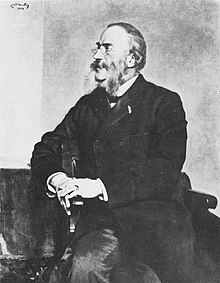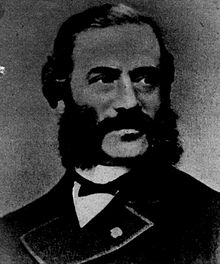Gerson von Bleichröder


Gerson von Bleichröder (22 December 1822 – 18 February 1893) was a Jewish German banker.
Bleichröder was born in Berlin. He was the eldest son of Samuel Bleichröder, who founded the banking firm of S. Bleichröder in 1803 in Berlin. The bank maintained close contacts with the Rothschild family; the banking house of Bleichröder acted as a branch office in Berlin of the Rothschilds' bank.
Bleichröder was concerned with the private banking transactions of Otto von Bismarck and with the transfer of credits and/or placing of loans on behalf of the Prussian state and the German Empire. He was also a partner at the investment bank of Ladenburg Thalmann. Bleichröder and his family were made Prussian nobles on 8 March 1872, in Berlin. Bleichröder was only the second Jew in Prussia to be ennobled. Bleichröder was preceded only by Abraham Oppenheim, another banker close to the regime, ennobled four years earlier.
The German-American historian Fritz Stern wrote a double-biography of Otto von Bismarck and Gerson von Bleichröder, Gold and Iron: Bismarck, Bleichröder, and the Building of the German Empire [ISBN 0394740343].
See also
- Arnhold and S. Bleichroeder, an investment bank.
External links
